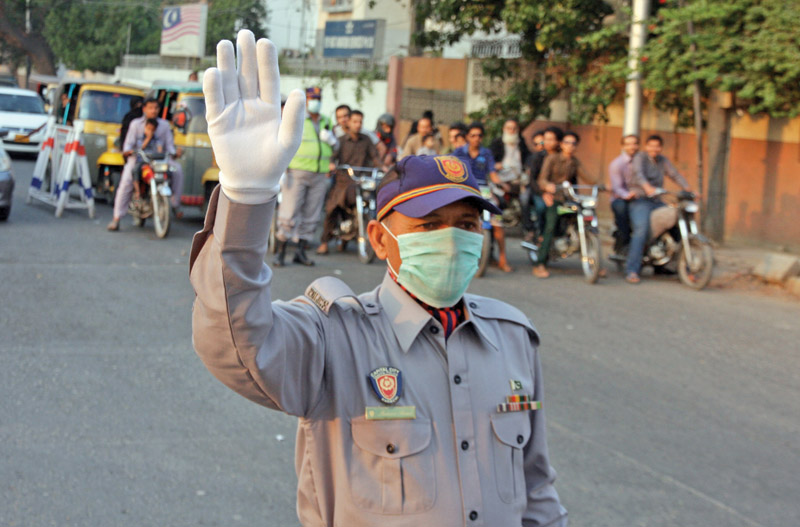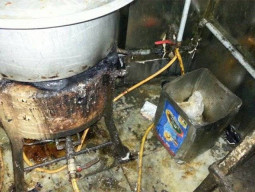
The delivery cost will be borne by the violator. The Karachi traffic police successfully launched the TVES on Friday, January 1. The system, according to traffic police official Muhammad Idrees, who is a reader to traffic DIG Amir Ahmed Shaikh, has initially been launched in district South and in some areas of district East.
South traffic SP Faisal Abdullah Chachar, who is monitoring the TVES in his zone, said that the system only exists in Karachi. He said that they have access to the Excise and Taxation Department and Citizens-Police Liaison Committee (CPLC)'s databases, which is how they obtained violators' addresses by inserting their vehicle's number plate in the system.
Flawed system: Cost of TVES project still unknown
Meanwhile, excise secretary Shahabuddin Khatri denied giving the traffic police any access to their database. He said that the CPLC has access to their database and the traffic police could seek their help. CPLC chief Zubair Habib confirmed that they have given the traffic police access to the excise department's data. "The traffic police and CPLC will work together to curb traffic violations in the city," he said.
Chachar's reader, Tufail, explained how the system was going to work.
He said that there were total 1,300 CCTV cameras installed in every nook and cranny of the city. "We have access to them at our command and control section at the Central Police Office, which works round the clock," he explained, adding that once enough evidence were collected, they shifted it to the TVES cell, situated at the traffic police's headquarters in Garden. After examining the evidence closely, they insert the vehicle's licence plate number in their system and can obtain the violator's address, he said.
"We then immediately dispatch the ticket via traffic police official, along with evidence of the violation," said Tufail, explaining that they send pictures of the violation so that it cannot be denied. The traffic police have made sure that violators cannot runaway easily. Despite the traffic police not having vehicle documents or violator's national identity cards, their access to the excise and taxation department database has proven a godsend.
"The file of the violator's vehicle will not be able to be transferred in the case of a sale if the fines are not cleared," Tufail explained, adding that the cost of the fine would also increase once the due date passed.
Traffic police ensure smooth flow along train route
Mobile vans with cameras
Apart from the CCTV cameras, Tufail explained that there were six mobile vans currently deployed in District South, with two cameramen in each one. "They are always present at different intersections of the district," said Chachar adding that he changed their spots every day. Tufail explained that the cameramen hide themselves along roadsides and make videos of the violators. Once the videos are recorded they are taken to their cell, he said. This camera service, according to Chachar, was started because the picture quality of the CCTV cameras in the city was dismal. He said that due to licence plates could be obscured due to poor lighting.
Blind eye of justice
According to Chachar, the system is specially designed to curb traffic violations by affluent people. "It is easy to stop a motorcyclist and fine him but the violator in a Pajero speeds away," he said, adding that with the help of this system, violators driving big, fancy cars could be brought under the ambit of law.
The system, Chachar explained, also allows violators to see videos. "If any violator casts doubts on the pictures we have dispatched to his or her home they can come to our cell and watch their videos," he said, adding that there would be a fee for that.
Traffic DIG Amir Ahmed Shaikh did not respond to repeated calls for his comments.
Published in The Express Tribune, January 10th, 2016.

















COMMENTS (3)
Comments are moderated and generally will be posted if they are on-topic and not abusive.
For more information, please see our Comments FAQ